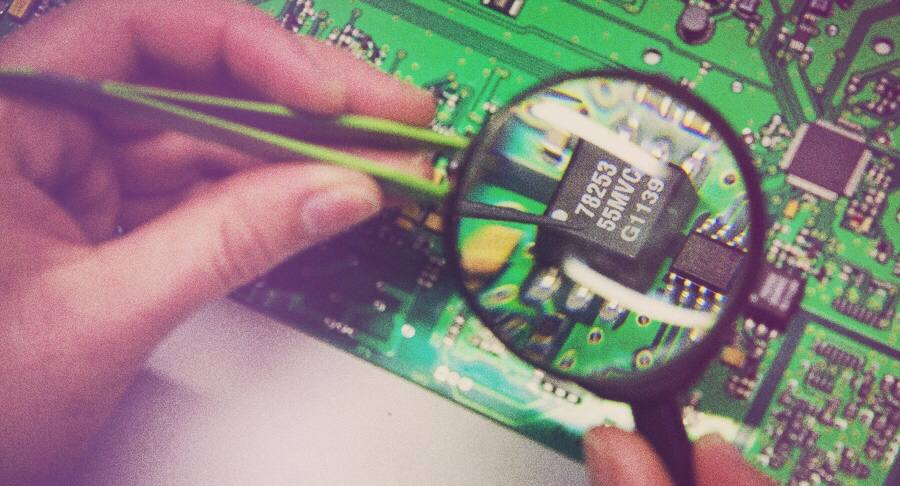Russian Ministry of Industry Proposes Building Domestic Electronics Industry from Scratch
The Russian Ministry of Industry and Trade (Minpromtorg) has prepared an updated concept for the development of Russian microelectronics through 2030, identifying the key problems facing the industry and proposing solutions. The draft document was reported by Kommersant.
Key Challenges in Russian Microelectronics
- Technological lag of 10–15 years behind the global level
- Difficulties mastering technological processes below 180 nm
- Insufficient production capacity
- Critical dependence on foreign technologies for design and manufacturing, including software and materials (especially ultra-pure chemicals and silicon)
- Inability to supply the market with necessary electronics
- Low investment attractiveness
- High production costs for components in Russia
- Severe shortage of qualified personnel
The document also mentions attempts to blame “unfair competition from foreign electronics suppliers” for some of these issues. The Ministry proposes that market participants coordinate “research in advanced technologies,” increase production capacity (including by mastering the production of microelectronics with modern topological standards), create an electronic engineering industry essentially from scratch, and ultimately abandon foreign architectures when designing electronics.
The authorities are ready to simplify manufacturers’ access to grants, subsidies, and preferential loans. Minpromtorg expects that after 2030, Russian microelectronics will begin “expanding into international markets.”
Background and Industry Reactions
The publication notes that the strategy for developing the electronics industry through 2030 was first developed in early 2020. The government began work on a related national project in February of this year, but state policy is only now being formed, at a time when conditions have changed dramatically.
A source at a major microelectronics manufacturer told Kommersant that “the resource support for state policy is unclear.” According to the source, the industry needs “not strategic forecasts, but urgent measures: funding, help expanding production, and major investments in developing local infrastructure.”
After the start of Russia’s “special military operation” in Ukraine, Western countries imposed sanctions on Moscow, including restrictions on the export of microelectronics and high-tech products. Many major technology and IT companies have left Russia.
According to Arseny Brykin, CEO of the Basis consortium, the government appears to be aiming to build vertical management of the industry nationwide and design its long-term development: “Based on these theses, Minpromtorg will develop specific measures and initiatives, but for now, the document looks more like a set of general goals and objectives.”
Expert and Public Criticism
Blogger and IT specialist Ilya Vaytsman was even more skeptical of Minpromtorg’s initiative. In a conversation with Roskomsvoboda, he called it “science fiction for the ‘main reader,’ who will like it due to his profound incompetence.”
“Even if such a program is launched,” he argued, “the only thing they’ll manage is to siphon off a few billion on the ‘first stages of the program.’ Because starting to ‘master technological processes’ from the stage of fundamental research is… hard to even describe… It would take fifty years or more to independently cover the ground that organizations with vastly greater resources have covered in a couple of decades. Especially since now, no one will supply modern equipment to Russia; at best, they might persuade the Chinese to sell outdated production lines at five times the price.”
“But even if these lines are purchased and, by some miracle, they manage to start producing some ‘Elbrus’ chips (expletive), they will be hopelessly unprofitable, since there simply isn’t a market for them ‘within Russia,’” the IT specialist continued. “Thus, operating at 10% capacity, they’ll set such a high price for a single processor that the government will only be able to sell them to itself. It’s a vicious cycle. The ‘microelectronics program’ is about as realistic as Aeroflot’s agreement with the United Aircraft Corporation to produce 330 airliners in the next few years, when until now they haven’t managed to make even 10 per year, and that was with access to imported avionics, engines, and materials.”
“In short: it’s nonsense. At least the government hasn’t suggested that programmers make their own processors,” Vaytsman concluded.



